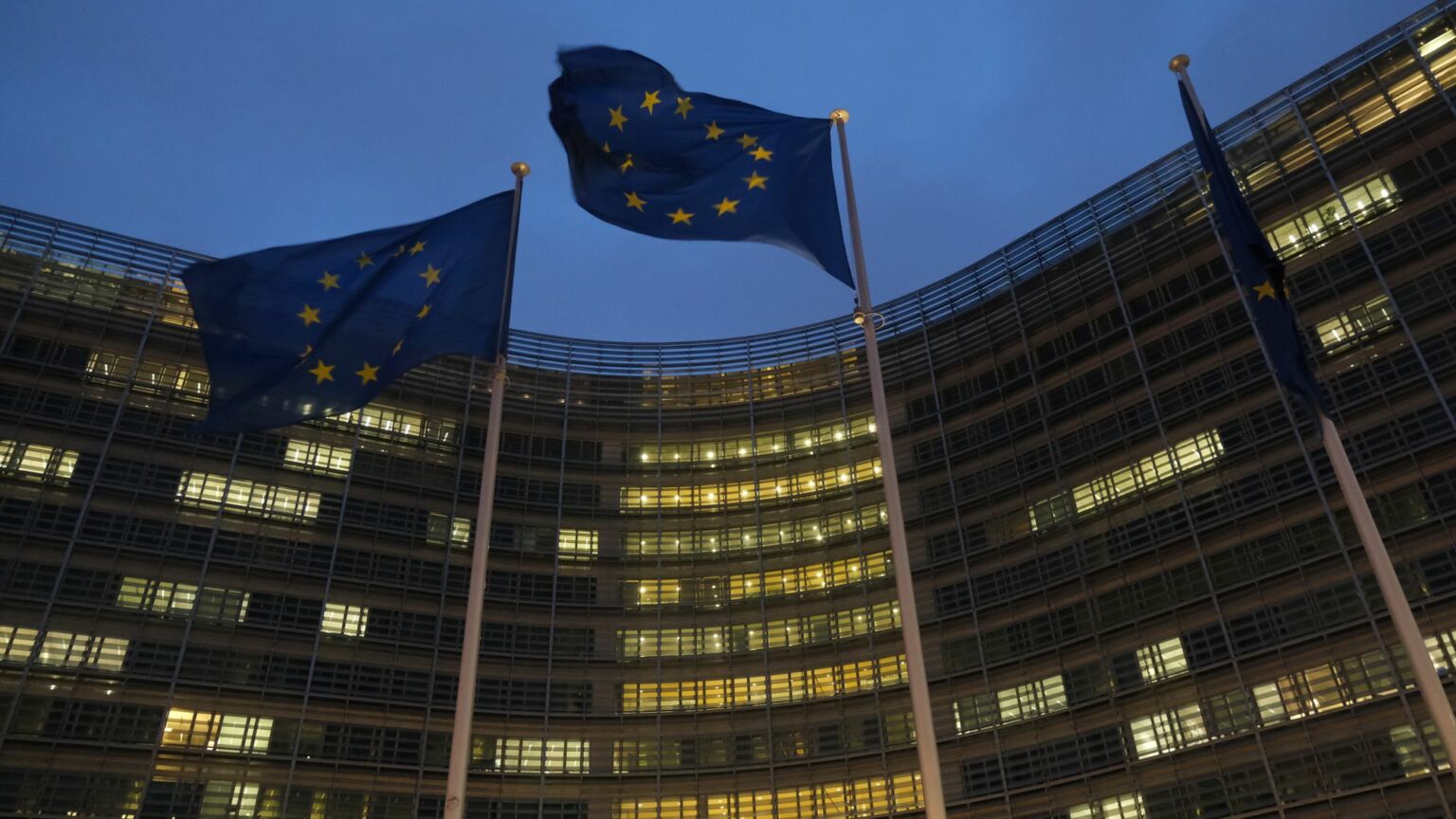The EU’s Orwellian crackdown on the media
Its ‘media freedom’ law is another thinly veiled crusade against Poland and Hungary.

Want to read spiked ad-free? Become a spiked supporter.
The European Media Freedom Act (EMFA) appears, at first glance, like a worthy piece of legislation. Ostensibly, its aim is to create a more independent and transparent media. And who could object to that?
In reality, though, the EMFA is not about media freedom or media pluralism. Rather, it is a fig leaf for the EU’s crusade against Poland and Hungary – nations the EU oligarchy has long had a problem with. Brussels now insists they pose a unique risk to media freedom in Europe.
When the EMFA was first proposed in September 2022, it was against a backdrop of fear-mongering about a supposed crisis of democracy in Central Europe. Vice-president of the European Commission for ‘values and transparency’, Věra Jourová, explicitly mentioned Hungary when talking about the EMFA: ‘I believe that the media-freedom act might have an influence on the behaviour of [member states], including Hungary.’
The EU claims to be concerned about media monopolies in places like Poland and Hungary. But Brussels is apparently relaxed about media monopolies in other EU member states. According to the Media Pluralism Monitor (MPM), no country in Europe is free from threats to media pluralism. The recent Liberties Media Freedom Report 2023, produced by the Civil Liberties Union for Europe, came up with similar findings. It discovered that ‘strong media-ownership concentration persists and poses a significant risk to media pluralism’ throughout much of the EU. And yet, Poland and Hungary are continually singled out by Brussels as posing a particular threat to media freedom.
The Civil Liberties Union for Europe report provides a list of countries where journalists are most at risk of physical and verbal attacks. These include Belgium, Croatia, France, Germany, the Netherlands and Ireland. Poland and Hungary are notably absent from this list. The report also suggests that constraints on freedom of information are an EU-wide problem. Similarly, abusive lawsuits designed to silence critical journalism – so-called strategic lawsuits against public participation (SLAPPs) – are common across EU member states, too.
Clearly, Poland and Hungary are not the only member states with a media-freedom problem. So why are they always made to be the standout villains?
The answer has little to do with media pluralism and everything to do with the political bent of the media in these countries. In other words, Polish and Hungarian media tend to be nationalist, conservative and decidedly anti-woke. These views are anathema to the EU.
The EU’s claims to stand for free speech ring hollow. Free speech in Europe has long been compromised by laws seeking to censor ‘hate speech’, Holocaust denial and ‘incitement to violence’, among other things. Yet Brussels has never objected to any of those laws.
And the EU itself is becoming increasingly censorious. Take its authoritarian Digital Services Act, agreed last year, which aims to regulate online speech. The EU is also introducing legislation to regulate political advertising. These are essential parts of a broader attempt by the European Commission to control speech and political activity, all under the guise of fighting ‘hate speech’ and ‘disinformation’.
The never-ending crusade against Poland and Hungary comes down to the fact that Brussels cannot abide governments that stand up for national sovereignty or go against the woke agenda. These nations are determined to provide an alternative to the cultural values of the EU elites, and so this has provoked the wrath of the EU and its partners, who are terrified other nations might follow suit.
The illiberal nature of the EMFA cannot be overstated. Included in the bill is a proposal to establish a new European Board for Media Services. This would replace the existing European Regulators Group for Audiovisual Media Services (ERGA). In effect, this would give the EU a direct say over member states’ media landscapes. This drive to centralise media control, away from national governments and towards Brussels, reveals the political intent behind this law.
This is all another example of the EU’s authoritarian impulse to control the politics of member states. The way the EU uses the term ‘media pluralism’ is a kind of Orwellian doublespeak. It means the opposite of what it implies. The EU doesn’t want pluralism – it wants to concentrate power in Brussels. It doesn’t want freedom – it wants to curb free expression and impose technocratic values from above. And it wants to do all of this without any public debate or accountability.
The EMFA will do nothing to safeguard media freedom in Europe. Quite the opposite. It will only strengthen the power of Brussels over the media and political debate. Anyone who genuinely believes in media freedom and pluralism should oppose it.
Dr Norman Lewis is managing director of Futures Diagnosis and a visiting research fellow of MCC Brussels.
Picture by: Getty.
Who funds spiked? You do
We are funded by you. And in this era of cancel culture and advertiser boycotts, we rely on your donations more than ever. Seventy per cent of our revenue comes from our readers’ donations – the vast majority giving just £5 per month. If you make a regular donation – of £5 a month or £50 a year – you can become a and enjoy:
–Ad-free reading
–Exclusive events
–Access to our comments section
It’s the best way to keep spiked going – and growing. Thank you!









Comments
Want to join the conversation?
Only spiked supporters and patrons, who donate regularly to us, can comment on our articles.